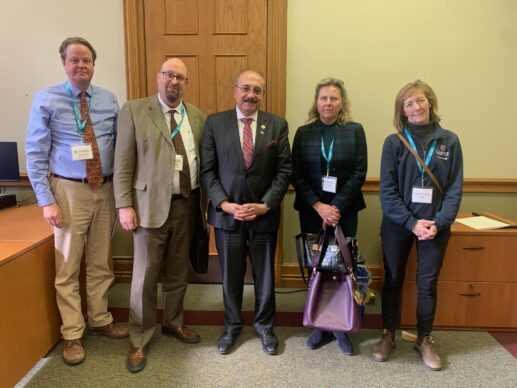TORONTO, April 30, 2024 – The Ontario Confederation of University Faculty Associations (OCUFA) recognizes the essential contributions of the Brescia Faculty Association (BFA) to the vibrant and unique educational experience at Brescia University College in advance of the institution’s closure on May 1, 2024.
“Brescia University College was Canada’s only women’s university college and it provided a singular educational experience to its students for more than 100 years,” said Nigmendra Narain, OCUFA President. “OCUFA is grateful to the BFA and its members for their commitment to service, teaching, and research in an exceptional liberal arts environment. We acknowledge their hard work—past and present—to serve their students.”
Western University will absorb Brescia programs and students. Some permanent and contract faculty from the BFA will join the University of Western Ontario Faculty Association (UWOFA). These members will carry out their teaching, research, and service responsibilities at Western.
However, Western prohibited some contract faculty members from transferring positions from Brescia.
“OCUFA is glad that some BFA members will be welcomed into UWOFA as new Western faculty members so that they can continue their valuable teaching and librarianship work at Western,” said Narain. “We call on Western University to work meaningfully within collegial governance procedures and with UWOFA to ensure that the path forward for faculty will respect and align with existing collective agreements.”
OCUFA will continue to monitor Western University’s implementation of promises to establish a Brescia Legacy Fund for Brescia students and maintain an all-women and gender-non-conforming residence hall and student lounge on campus, among other pledged supports.
“At a time when the safety of women and trans people is increasingly threatened, equitable and safe spaces that once existed at Brescia must be preserved and enhanced in this new chapter,” said Jenny Ahn, OCUFA Executive Director. “OCUFA and UWOFA will continue to hold the University accountable for ensuring the safety and comfort of students through this process.”
About OCUFA: Founded in 1964, OCUFA represents more than 18,000 faculty, academic librarians, and other academic professionals in 30 member organizations across Ontario. It is committed to enhancing the quality of higher education in Ontario and recognizing the outstanding contributions of its members towards creating a world-class university system. For more information, please visit the OCUFA website at www.ocufa.on.ca
For more information, contact:
Manisha Aggarwal-Schifellite, Communications Lead at media@ocufa.on.ca










